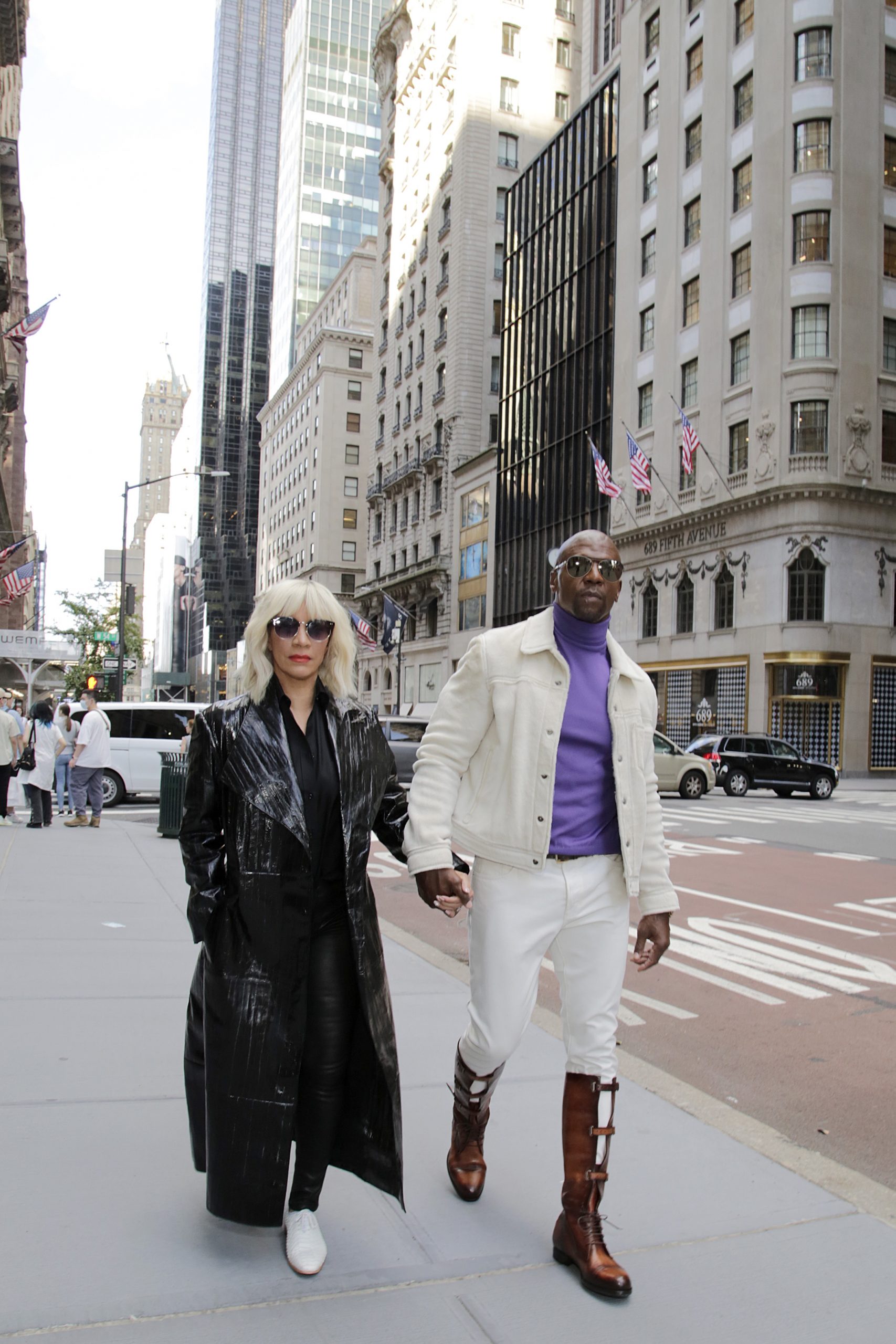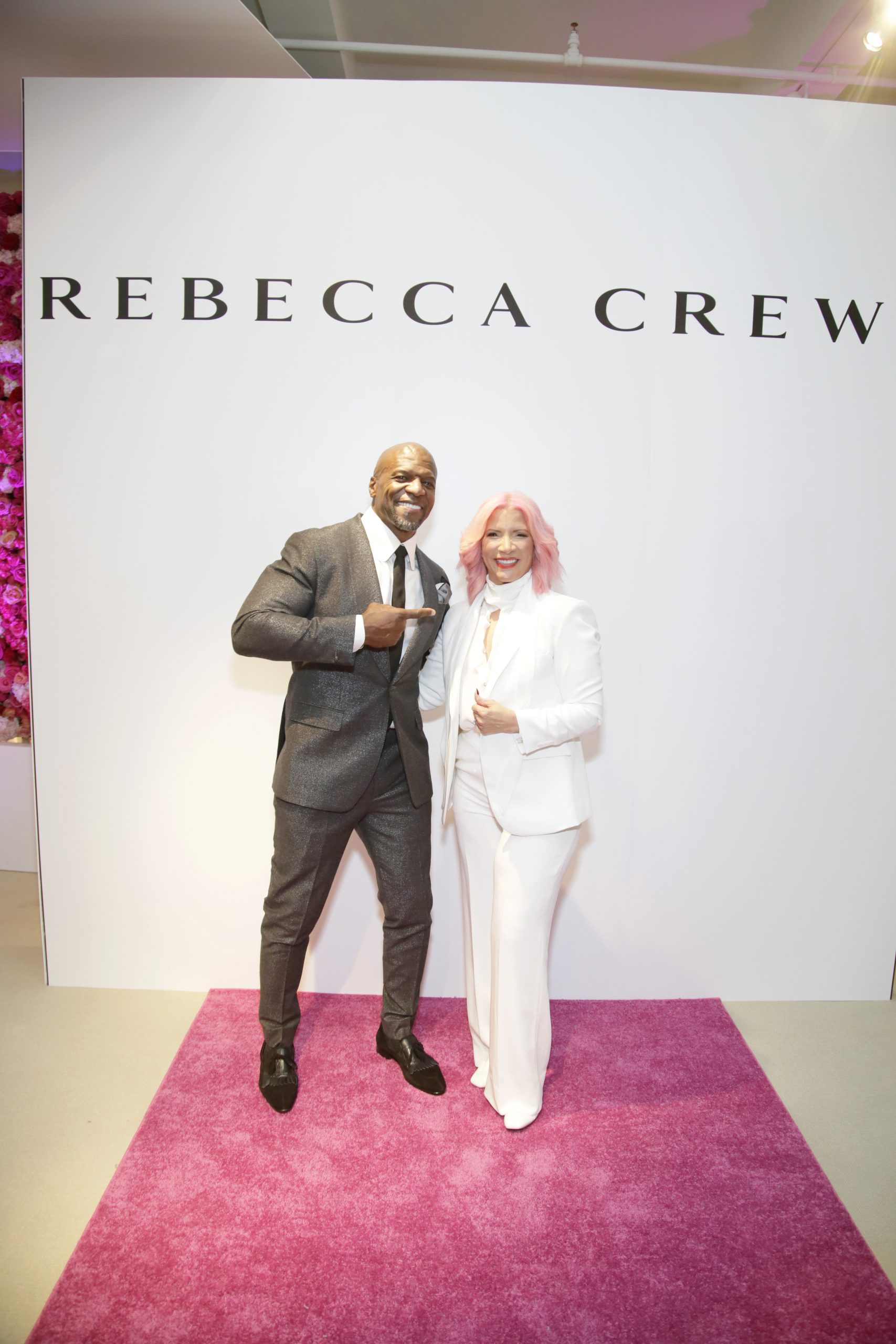How Faith Can Help Cancer Patients' Journey to Recovery
- Actor Terry Crews’ wife, Rebecca, 57, hosted a special in-person prayer session to help people cope amid crises domestic and abroad, including the war in Israel. She wanted to offer hope during these “trying times.”
- Crews says her faith was strengthened as she battled stage 1 breast cancer. She is “cancer-free” after undergoing a double mastectomy (removal of both breasts).
- A study published in Cancer includes data that found “69% of cancer patients reported praying for their health” compared to “only 45% of the general U.S. population.”
New York City Presbyterian Pastor Tom Evans previously spoke with SurvivorNet about how faith can help people cope with the complex emotions that come with cancer. - “It’s important to reach out in a simple prayer to God, even if you’ve never prayed before, you don’t know what to say, a heartfelt plea, ‘God, help me, be with me,'” Pastor Evans told SurvivorNet.
The wife of actor Terry Crews, Rebecca, 57, has leaned on her faith to help her through some of her biggest challenges, from losing a baby to breast cancer. In the face of several crises impacting the world, including a hard-to-watch war, she held a special in-person prayer session that was live-streamed for her supporters seeking respite. The resilient breast cancer survivor and mother of five called this moment “trying times” amid prayer.
“My wife and I have been through a lot of things,” Terry Crews previously told SurvivorNet in an interview.
Read MoreView this post on Instagram
Crews’ video post shows her praying in a room with supporters.
“Faith without hope is not faith…faith is the expectation of goodness and light coming to you from an eternal place of grace,” she said in her prayer message.
“With things going on in the world…The righteous will shine brighter,” she added.
She regularly hosts Monday night prayer sessions on her popular Instagram channel. The week prior, she posted about the war in Israel.
“We prayed for the nation of Israel. I’m calling all of my prayer warriors to stand in the gap for this war to end,” she wrote in a post.

Supporters online express gratitude for the prayer session to help them cope with the flurry of worrisome news concerning so many domestic and abroad.
“I hope you’re praying for the people in Palestine as well love,” Instagram user Penelope wrote.
“To a remarkable and extraordinary Queen! Keep RISING Becky…you are changing lives beyond your own limits – your light ‘is’ shining ever so bright,” Instagram user Janice Harvey Designs wrote. Crews gratefully replied, “Thank you, Janice.”
WATCH: Turning to Faith During a Cancer Journey.
How Faith Can Influence Your Cancer Journey
Crews’ Journey
Crews knows all about adversity and what it takes to power through it. She was diagnosed with stage 1 breast cancer in 2020 following a mammogram and ultrasound.
Stage 1 breast cancers are relatively small; they either have not spread to the lymph nodes or only a small area of cancer has spread to the sentinel lymph node. Treatment will likely be surgery, radiation following surgery, chemotherapy, or other therapy.

Crews underwent a double mastectomy procedure that involved removing both breasts to get rid of cancer. The procedure may also be a preventative measure for women at a higher risk of developing breast cancer.
“A double mastectomy typically takes about two hours for the cancer part of the operation, the removing of the tissue,” Dr. Elisa Port, Chief of Breast Surgery at Mount Sinai Health System, told SurvivorNet.
“The real length, the total length of the surgery, can often depend on what type of reconstruction [a patient] has,” Dr. Port added.
During Rebecca Crews’ cancer journey, she gave large amounts of credit to her faith in God and her loving and supportive husband, Terry, for helping her fight her cancer.
Rebecca Crews remains free of the disease following her cancer treatment.
“Our love right now is the strongest it’s ever been because we survived,” Terry told SurvivorNet in an interview.
The Power of Positivity and Faith
Since beating cancer, her faith in herself and God has been strengthened. She previously stated earlier this year during a prayer session that sometimes adversity is what we need to grow.
“Sometimes dark and difficult times are exactly what we need to help us grow and become stronger. They challenge us to dig deep within ourselves and find the strength to keep going, even when we feel like giving up,” she said in an Instagram post.
Why Faith Offers Cancer Patients Hope
A study published in “Cancer” includes data that found “69% of cancer patients reported praying for their health” compared to “only 45% of the general U.S. population.”
Cancer psychologist Dr. Andrew Kneier helped co-author “Coping with Cancer: Ten Steps toward Emotional Well-Being.” He also co-authored a column published by Stanford Medicine with Rabbi Jeffery M. Silberman, director of spiritual care at Danbury Hospital in Connecticut.
The two add more context to the impact faith has on cancer patients.
“A person’s faith or spirituality provides a means for coping with illness and reaching a deeper kind of inner healing,” Kneier and Silberman said.
“Coping means different things to different people: it can involve finding answers to the questions that illness raises, it can mean seeking comfort for the fears and pain that illness brings, and it can mean learning how to find a sense of direction at a time of illness. Religious teachings can help a person cope in all of these dimensions,” Kneier and Silberman continued.
WATCH: Three-time cancer survivor shares how her faith helped her during cancer.
New York City Presbyterian Pastor Tom Evans tells SurvivorNet about the importance of finding ways to cope with the complex web of feelings you may be experiencing after a challenging health diagnosis, such as cancer.
“It’s important to reach out in a simple prayer to God, even if you’ve never prayed before, you don’t know what to say, a heartfelt plea, ‘God, help me, be with me,'” Pastor Evans told SurvivorNet.
“You can reach out to God, and you can reach out to people, your friends and family, and say, ‘I can’t do this on my own. I need you.’ “It’s in that willingness to be open and to receive that we can find something deeper that we never would’ve encountered without this hardship,” Evans continued.
Learn more about SurvivorNet's rigorous medical review process.
